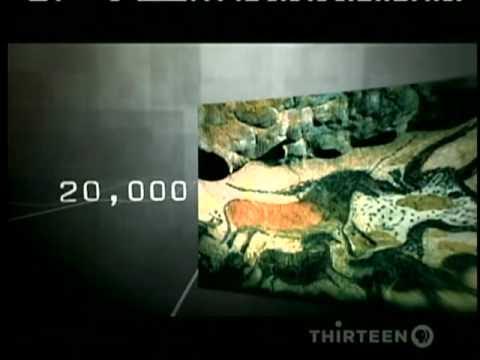Bagaimana Jika Kita Terus Berevolusi (Eksperimen)
Summary
TLDRThis video explores the future evolution of humans, delving into how our species has adapted and might continue to do so. It highlights changes like the ability to drink milk as adults, smaller jaws and teeth, and the potential for future physical adaptations such as shorter statures and reduced body hair. The impact of modern nutrition, medical advancements, and technology on our evolution is also discussed. The video speculates on how humans might adapt to life in space, with changes in muscle structure, body fat, and skin protection. Ultimately, it suggests a future where evolution might blend with technological enhancements.
Takeaways
- 😀 Humans have continuously evolved to adapt to their surroundings, such as the ability to digest milk as adults, which developed through genetic changes over generations.
- 😀 Modern humans have smaller jaws and teeth compared to their ancestors due to the softer, processed foods we eat today.
- 😀 Wisdom teeth, once essential for our ancestors, are becoming obsolete as human jaw size has decreased.
- 😀 Human height has increased in recent centuries due to better nutrition and healthcare, but future evolution might lead to shorter stature due to overcrowded environments.
- 😀 Genetic mixing from global interbreeding might lead to more uniform physical traits in the future, such as darker skin and hair becoming more common.
- 😀 Some scientists believe that due to cultural and technological advancements, human evolution might slow or even stop, with humans relying more on technology rather than biological adaptation.
- 😀 Advances in technology may lead to humans augmenting themselves with brain implants, artificial limbs, or enhanced vision, potentially making physical evolution less necessary.
- 😀 There are theories that the human brain may continue to evolve, either becoming larger and more complex or shrinking and becoming more efficient, depending on future environmental and technological pressures.
- 😀 Humans may adapt to extreme environments, such as space, by undergoing rapid evolutionary changes like stronger muscles, thicker skin, or better protection from radiation.
- 😀 In the distant future, humans could evolve to better survive in low-gravity environments, leading to changes in our muscular and skeletal structure, as well as our metabolic systems.
Q & A
How has human evolution adapted in recent generations?
-Human evolution has adapted in various ways, including the development of the ability to digest milk in adulthood and a reduction in jaw size due to softer, processed foods. These adaptations are largely influenced by changes in diet and lifestyle.
What is the significance of human jaw size shrinking?
-The shrinking of the human jaw is a result of changes in diet. Our ancestors had larger jaws due to the need to chew tougher, raw foods. In contrast, modern humans consume softer, processed foods, which has reduced the need for large jaws.
Why are wisdom teeth disappearing in modern humans?
-Wisdom teeth are disappearing because they were once necessary for grinding down tough food. However, modern diets, which consist of softer, more processed foods, no longer require this function, leading to the gradual disappearance of third molars in many people.
What factors are contributing to the increase in human height over the past centuries?
-The increase in human height is mainly due to improved nutrition and better access to healthcare, which have allowed people to grow taller. However, this trend could change depending on future environmental and social factors.
How might the future of human evolution be influenced by urbanization?
-As urban populations grow and resources become more limited, humans might evolve to become shorter over time. Smaller bodies consume less energy and resources, which could be an adaptation to dense, resource-scarce environments.
What is the theory behind the potential blending of human physical traits in the future?
-Due to increased globalization and the mixing of human populations, certain physical traits, like skin and hair color, may become more uniform in the future. This could lead to a more homogenous human appearance across the globe.
Will evolution continue to play a significant role in shaping human development in the future?
-Some experts believe that human evolution may slow down as technology and culture take over the role of survival. Unlike our ancestors, modern humans don't face the same survival pressures, and cultural advancements may reduce the need for biological evolution.
How might technological advancements impact the future of human evolution?
-Advancements in technology could lead to modifications in the human body through cybernetic enhancements and implants. This may include brain implants or artificial eyes, potentially bypassing the need for biological evolution by directly altering human capabilities.
How could human diets influence future evolutionary changes?
-As humans continue to rely on processed foods, the body might adapt to better digest and absorb nutrients from these foods. For example, people could evolve to break down trans fats more efficiently, similar to how humans adapted to digest milk thousands of years ago.
What are the potential risks of modern medicine on human evolution?
-Modern medicine, while improving health, might weaken our immune systems over time. Over-reliance on antibiotics and medical interventions could reduce the body's ability to fight off infections naturally, making humans more vulnerable to diseases in the future.
Outlines

Cette section est réservée aux utilisateurs payants. Améliorez votre compte pour accéder à cette section.
Améliorer maintenantMindmap

Cette section est réservée aux utilisateurs payants. Améliorez votre compte pour accéder à cette section.
Améliorer maintenantKeywords

Cette section est réservée aux utilisateurs payants. Améliorez votre compte pour accéder à cette section.
Améliorer maintenantHighlights

Cette section est réservée aux utilisateurs payants. Améliorez votre compte pour accéder à cette section.
Améliorer maintenantTranscripts

Cette section est réservée aux utilisateurs payants. Améliorez votre compte pour accéder à cette section.
Améliorer maintenant5.0 / 5 (0 votes)






